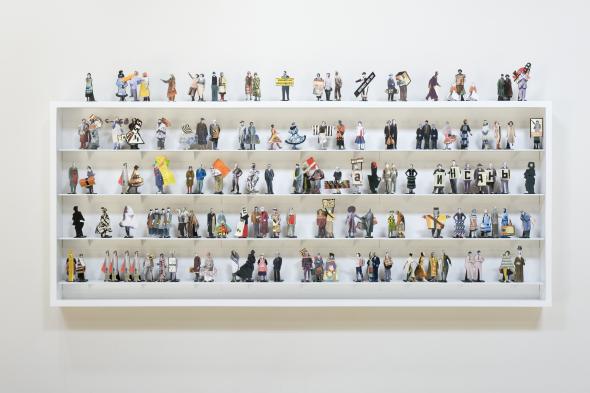The Right Portuguese Accent
I left Angola for the first time in 1976. I fled with my elder sister from the civil war to neighbouring Zambia. As a ten year old, I spoke Portuguese and Umbundu. In Zambia, I was soon absolved into the Umbundu-speaking community. Most Angolans in Zambia wanted to pass as Zambians: the use of Portuguese would have made us stand out. At that time, Zambia was a home to many refugees from other parts of Africa. In Ndola, where I spent some years, we had Zimbabwean neighbours who spoke Zezuru (a version of Shona) were polygamists (Mr Tongara, our neighbor, had six wives) and worshipped one Baba Joani who had founded his church after God had spoken to him in a forest near the Zimbabwean town of Rusape. We also had Somali neighbours; most of the men chewed khat and drove trucks from Tanzania to Zambia. Then there were the Congolese, who were derogatorily referred to as Bakasai. In that world, I desperately wanted to pass for a Zambian. I dropped the name Sousa Jamba and became Joseph Evans Njamba. I avoided speaking Portuguese and made all the efforts to learn to speak Bemba (a language I have to love so much) and English. I wanted to have a Zambian accent.
Among us Angolan refugees, especially among the elders, there were those who had a special passion for the Portuguese language. I recall spending holidays at Uncle Jeremias Bandua’s house in Meheba refugee camp. In the day, we would often go to the fields to look after the vegetables etc with older Angolan men. Some of these men were also on holidays as they had scholarships and were attending different college in the urban areas. The older Angolans would then start remembering certain aspects of the colonial days such as bacalhau (codfish with potatoes) and Tia Maria biscuits. I recall one morning, as we worked in the fields, Mano Lito Bau, suddenly inspired after drinking chisangwa, breaking into an Amalia Rodrigues fado: he put his hands on his heart and, in between the song, would heave “Ah, Lobito!” , “Aiwe Benguela!” At other times, these elders would argue about the Lusíadas, the great Portuguese epic, and insist vehemently that Shakespeares works were a child’s scratches when compared to, Os Lusíadas, the opus of the great Portuguese genius, Luis de Camões. These elders would look at us pityingly; after all, we were never going to be exposed to the wonderful world of the Portuguese language. To them, we were an uncivilized lot.
 William Kentridge & Greta Goiris, The Nose Ensemble Costume Maquettes, 2009
William Kentridge & Greta Goiris, The Nose Ensemble Costume Maquettes, 2009
Then there was the highly theatrical language corrections. Most of us, who were now immersed in the English language, had difficulties with some Portuguese words such as “cimento” “cement”; we would say, “cemento.” There were other mistakes we made in Portuguese which horrified these elders. At other times, they would fall about laughing not believing that one could be so crass as not to be able to speak proper Portuguese. I was once told to stop trying to speak Portuguese if I was to speak it o badly. Luis de Camões, they insisted, must have been turning in his grave as we mutilated his beloved tongue. I recall hearing Uncle Sacadura Cabral say to Mano Pedroso Lisboa that whenever he felt sad all he needed was to start speaking Portuguese to overcome his depression.
In 1984, aged eighteen, I returned to Angola – to a part of the country that was controlled by Unita. People never stopped making fun of what they thought as being my horrible, anglicized Portuguese. Many saw nothing wrong in mimicking my odd accent.
Then in 1986 I came to the UK and stayed for some years without having direct contact with the Portuguese language. On the times I would meet Angolans, I would notice that they were not taking me seriously not because my Portuguese was unintelligible but because I spoke with what they thought to be an accent. I decided, there and then, to improve my Portuguese. I became an avid listener to BBC Portuguese broadcasts to Africa which had such excellent journalists such as São Lima, Lijo Monteiro and the João Van-Dunen. Whenever I could, in London, I would spend some time with João Van-Dunen from whom I learnt not only the complexities of the Portuguese language but also several aspects of Angolan history. I also befriended the late BBC Portuguese language columnist António de Figueiredo. Mr Figuereido, then in his late sixties, lived in an apartment in Mortlake, a London suburb, surrounded by Portuguese books. His Irish wife, Kate, whom he loved so much, was very friendly. Mr Figuereido loved to talk, and was full of ideas. He would often pull out a Portuguese book (and he had so many of them) and read out a passage to me. I recall that he once read out to me a passage from a speech of the Portuguese dictator, Antonio Salazar.
About eight years ago, I started writing for the Angolan weekly, Semanário Angolense. The paper had fine copy editors – such Severino Carlos. He is one of those highly talented people who can turn something prosaic into highly impressive prose without suppressing the author’s voice. Most of the time, however, I was edited by Graça Campos, the editor, who until recently owned the paper. Graça was very patient, and he kept drawing my attention to some of the errors I kept making. Eventually, my written Portuguese improved tremendously. I also tried to continuously improve my spoken Portuguese. On occasions, I even would, as the Angolans say, “afinar” or sound as though I had just come out of Portugal. In Angola, you can be a complete idiot, thoroughly unable to make sense of the world, but the moment you open your mouth and there are signs of a refined accent most people start treating you like royalty.